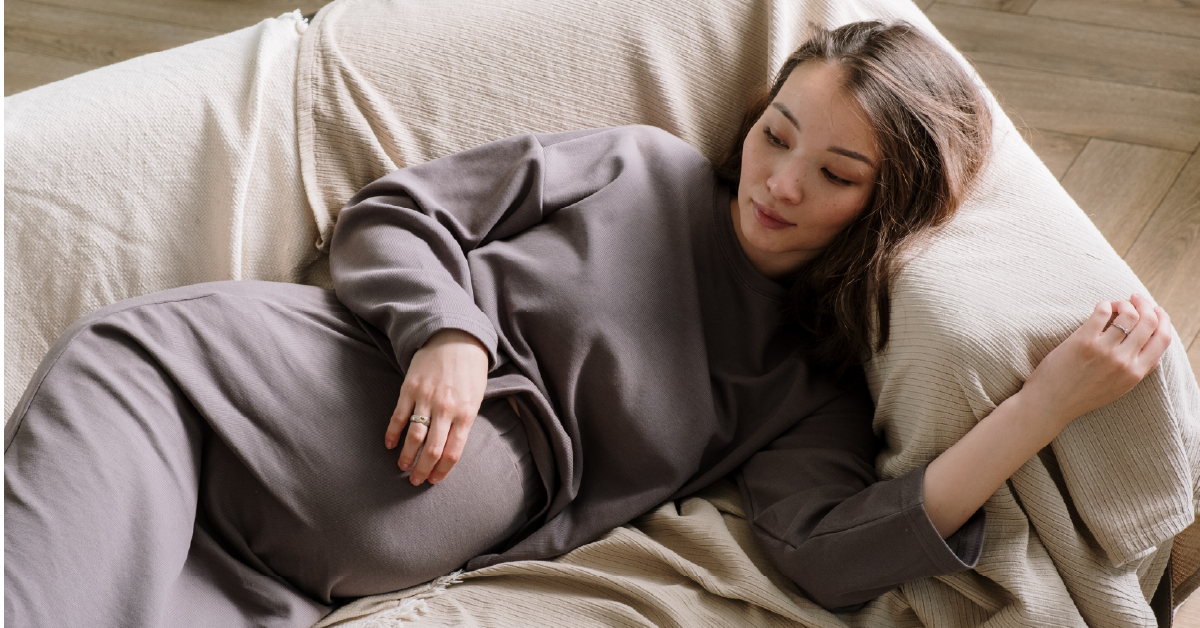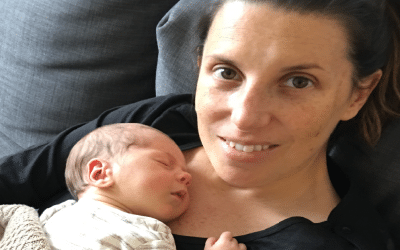Sleep Issues During Pregnancy
Not surprisingly, fatigue and pregnancy pretty much go hand in hand. Growing a baby is hard work! As much as you need sleep during pregnancy, the irony is it can be hard to get a good night’s sleep right when you might need it most. On top of general discomfort, pregnancy may also cause insomnia because of nausea, frequent urination, joint and back pain, fetal movement, leg cramps, heartburn, shortness of breath, and anxiety about labor and delivery. While pregnancy is likely to affect sleep to some degree no matter what, here are some things you can do to ease your discomfort and get more rest.
Choose A Supportive Sleep Position
The SOS (Sleep on Side) Position
Sometimes called SOS position, you’ve probably heard that sleeping on your side is best, especially during late pregnancy. Experts say that the left side should be favored because it lets the most blood flow to the fetus and improves your kidney function. That’s great news if you’re usually a side sleeper, but if you prefer to sleep on your back or stomach, changing to a new and unfamiliar position is probably going to take some getting used to.
Carefully placed pillows can help you feel more comfortable sleeping on your side, and if you’re normally a back or stomach sleeper can help you more easily adjust into side sleeping.
Try one or more of the following.
- Place a pillow between your bent knees to align your spine.
- Add a pillow under your belly to help you sleep more comfortably on your side.
- Place pillows behind your back to raise the upper body and reduce heartburn.
- Elevate your legs with pillows to help with swelling.
- Use a body pillow to cradle the body and provide additional back support.
A pregnancy pillow can provide all the extra support you need – IN ONE PILLOW. The PharMeDoc Full Body Pregnancy Pillow is a versatile and affordable option. The C-shaped design aligns your neck, head, hips, and back, and helps you keep your knees bent all at once.
Consider Upgrading Your Mattress
If you were tossing and turning every night before pregnancy, it could be time to upgrade your mattress now that you have that bun in the oven. A mattress that’s too soft may not provide enough support, while one that’s too firm may not comfortably contour to the body. Here are best mattresses for pregnancy.
Memory Foam Mattresses
A high-quality, firm memory foam mattress uses your body’s heat to conform to your body shape while evenly distributing your weight throughout the bed. The contouring effect of memory foam takes pressure off your joints, while reducing pressure points. Memory foam also absorbs movement which can help you avoid waking your partner if you tend to toss and turn throughout the night — something that becomes more common when expecting.
Hybrid Mattresses
Hybrid mattresses are a reliable option for side sleepers since they combine the contouring comfort of memory foam with the strong support of innersprings. Hybrid mattresses are often less expensive than 100% memory foam mattresses, making them a great choice for budget-conscious shoppers. Another added benefit of a hybrid mattress is that the innerspring allows for extra airflow which helps to minimize heat buildup.
Adjustable Base
An adjustable base isn’t a mattress but it can transform almost any mattress into a totally customized sleeping experience. When symptoms like acid reflux and back pain during pregnancy make it harder to find a comfortable position, an adjustable base feels like a worthwhile investment. During the third trimester, simply getting out of bed can feel impossible – and an adjustable base will literally sit you up at the touch of a button.
Additional Tips for Better Sleep During Pregnancy
Drink less water at night.
While drinking plenty of water during pregnancy is recommended, going to bed with a full bladder means more frequent trips to the bathroom throughout the night. Start drinking water early in the day and taper off as you get closer to bedtime.
Take short naps during the day.
Short naps throughout the day can help make up for the hours of needed rest you lose tossing and turning. Opt for shorter naps earlier in the day when possible to ensure you’ll be ready to sleep that evening too.
Eat light snacks.
To prevent nausea, eat snacks such as bland biscuits or crackers at regular intervals. You may also eat something light before going to sleep to avoid late night hunger.
Try relaxation techniques.
Deep breathing exercises, pregnancy-safe yoga, and meditation can help you relieve pregnancy stress and help wind down for sleep.
Avoid foods that cause heartburn.
Heartburn from acid reflux is very common in pregnancy. To minimize this pregnancy symptom at bedtime, try to avoid fried, acidic, and spicy foods.
I hope our little one is a naturally sound sleeper (a dad can dream!). For now, I’m glad to be able to help my wife and all of you support your sleep during pregnancy. If you’re pregnant and looking for better sleep, drop by your nearest Sit ‘n Sleep and let one of our experts help you find the perfect mattress, pillows, and bedding accessories to support you. To all the moms and mamas-to-be out there, I salute you!
Good sleep is essential for a happy healthy childhood and life. Book a consultation with us now!
Subscribe to our Newsletter and get the latest in sales, sleep information and more









